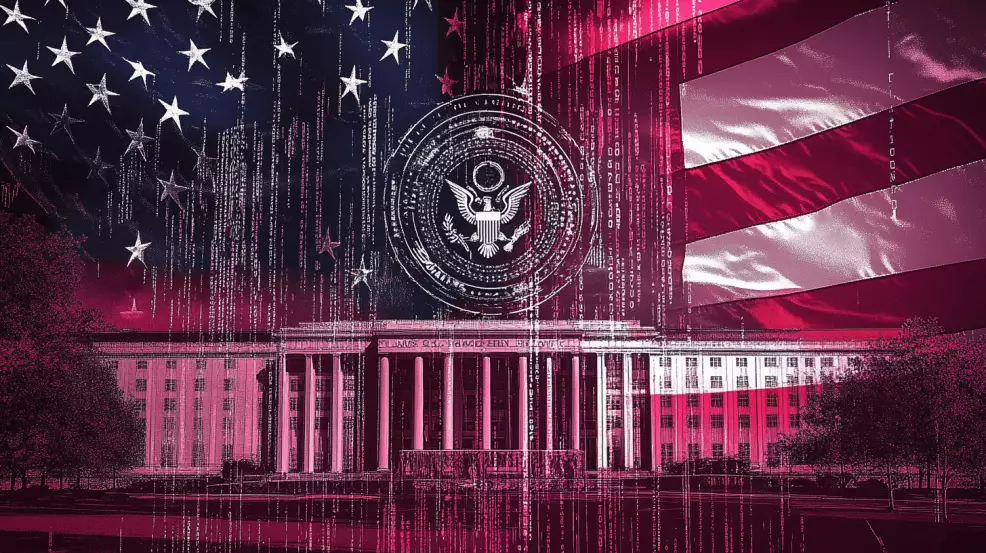The landscape of military cybersecurity is witnessing a significant transformation with the recent awarding of a pioneering generative AI contract by the Department of Defense. This $1.8 million Small Business Technology Transfer (STTR) Phase II contract marks a crucial turning point, as it goes to Jericho Security, a New York-based startup that is set to develop advanced cybersecurity solutions for the Department of the Air Force. This marked departure toward utilizing generative AI in defense scenarios indicates the growing recognition of the potential threats posed by sophisticated AI-based tactics in the realm of cybersecurity.
Sage Wohns, CEO of Jericho Security, emphasized the importance of this contract, calling it one of the first of its kind in the defense sector. In an ever-evolving threat environment, it signifies the military’s commitment to proactively addressing potential vulnerabilities before they can be exploited. As the complexity of cyberattacks increases, this contract heralds a new era in which the military can leverage innovative technology to bolster its defenses—reflecting a paradigm shift in how cybersecurity is approached.
Jericho Security’s innovative approach is focused on simulating intricate multi-channel phishing attacks, which are representative of real-world scenarios. Wohns elaborated that today’s phishing efforts extend far beyond traditional email scams, encompassing a coordinated array of tactics that may include text messages, phone communication, and even video calls. This multifaceted strategy for deception poses significant challenges for organizations trying to safeguard sensitive data.
What distinguishes Jericho’s offerings is its keen understanding of human vulnerability—the acknowledged weakest link in any cybersecurity framework. Studies indicate that a staggering 95% of data breaches can be traced back to human error. Jericho claims to tackle this issue by creating tailored security training programs rooted in individual risk assessments. Their technology uses generative AI to simulate highly sophisticated attacks, such as deepfake impersonations and AI-generated malware, thereby preparing personnel for potential threats and enhancing overall resilience against cyber intrusions.
The timing of this contract could not be more pertinent. Military personnel are increasingly at risk of targeted cyber exploits, as evidenced by the widely reported spear-phishing attack that specifically targeted Air Force drone operators through the distribution of fraudulent user manuals. Jericho Security has utilized its capabilities to help identify and remediate vulnerabilities within military frameworks by conducting attack simulations along with specialized training programs.
For a fledgling company like Jericho Security, securing a contract with the Department of Defense not only constitutes a significant achievement but also acts as a cornerstone for future endeavors. Transitioning from a commercial focus to addressing the specific needs of government contracts presents both a challenge and an opportunity, especially in light of the surging demand for robust cybersecurity solutions across the defense sector.
The Department of Defense mandates rigorous security protocols, and Jericho is well-equipped to meet these requirements. Wohns underscored that the company adheres to “military-grade cybersecurity standards,” which involve comprehensive measures like end-to-end encryption and isolated environments for the management of sensitive defense data. Such diligence not only complies with governmental regulations but also ensures trust and integrity in handling classified information.
Jericho Security’s proactive model, referred to as a “predator and prey” strategy, emphasizes a departure from conventional methods that primarily react to pre-identified threats. By prioritizing attack simulations, they create a continuous feedback loop of real-time data. This informed learning enhances both offensive and defensive capabilities, enabling the AI systems to be adaptive and evolve with the ever-shifting landscape of cybersecurity threats.
The Air Force’s collaboration with Jericho through AFWERX, the innovation sector of the Department of the Air Force, demonstrates a commitment to expediting the integration of private sector technologies into military frameworks. With over 6,200 contracts allocated, totaling upwards of $4.7 billion since 2019, this initiative not only fortifies the U.S. defense industrial complex but also stimulates the swift adoption of emerging technologies.
As Jericho Security embarks on this formidable journey, its ascent in the competitive cybersecurity market illustrates the profound impact that generative AI can have on safeguarding national security. This contract is not just a success for Jericho, but a pivotal moment for military cybersecurity as a whole, symbolizing a commitment to innovate in the face of growing technological threats.

